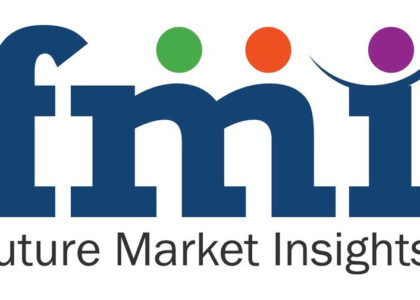The global lubricant additives market is poised for substantial growth, with a projected valuation of US$ 13.46 billion in 2023, set to further expand to US$ 21.7 billion by 2033, exhibiting a commendable Compound Annual Growth Rate (CAGR) of 4.8% throughout the forecast period. This anticipated surge underscores the increasing demand for lubricant additives across various industries, emphasizing their crucial role in enhancing the performance and longevity of lubricants in diverse applications.
Lubricant additive offers environmental benefits and is gaining attention from major players due to increasing environmental concerns. The evolving engine oil specifications, such as GF-6, are driving the demand for innovative lubricant formulations and additives. Automotive manufacturers and lubricant formulators are compelled to develop engine oils that meet these specifications, leading to a healthy growth in the demand for engine oil lubricant additives in the future.
Request a Sample Report and Explore New Growth Opportunities Now! https://www.futuremarketinsights.com/reports/sample/rep-gb-10895
The performance and efficiency of modern engines rely heavily on an effective lubrication system. Lubrication plays a crucial role in cooling the internal engine parts that experience friction and generate heat, preventing overheating. As engine technology evolves, such as with Gasoline Direct Injection and Turbocharge Gasoline Direct Injection in passenger cars, lubricant standards have also advanced.
The implementation of the ILSAC GF-6 standard in North America in 2020 has improved fuel economy, protection for emission systems, and engine oil robustness. This implementation is expected to drive the demand for lower viscosity index improver lubricants, which effectively reduce engine friction and are used in all types of vehicles.
To enhance vehicle efficiency and facilitate the transition to low-carbon vehicles, nations worldwide have introduced initiatives that encompass various automobile sectors including light-duty vehicles, heavy-duty vehicles, buses, motorcycles, and trucks. One notable example is the Global Fuel Economy Initiative launched by the United Nations in 2019 across 70 countries, with the goal of improving vehicle fuel economy and expediting the decarbonization of road transport by 2030. Consequently, there will be an increased demand for efficient lubricants such as bio-based and nanotube-based lubricants that can be utilized in new vehicles to achieve reduced engine friction and improved fuel economy.
Key Takeaways
- The market in China is expected to grow with a CAGR of 5.4% during the forecast period.
- The demand for lubricant additives in United States is expected to grow with a significant CAGR of 4.9% during the forecast period.
- By function type, viscosity index improvers segment is expected to grow with a CAGR of 5.8% during the forecast period.
- By end-use industry, automotive and transportation segment is expected to grow at a significant CAGR of 6.2% during the projected period.
“The evolving engine oil specifications and initiatives to facilitate low carbon vehicles is expected to drive market growth,” comments an FMI Analyst
Competitive Landscape
The market for lubricant additives is highly competitive, with numerous prominent industry players making substantial investments in increasing their manufacturing capabilities.
The key industry players are Afton Chemical Corporation, BASF SE, BRB International, Chevron Chemicals, Evonik, Lubrizol, Infineum International, Croda International PLC, Dover Chemical Corporation.
Some recent developments in lubricant additives market are:
- In May 2022, BASF SE expanded its lubricant additives market by launching a new product and doubling its production capacity for Irganox.
- In October 2022, BASF Petronas Chemicals Sdn. Bhd., a joint venture between BASF SE and Petronas Chemicals Group Bhd., announced plans to double the annual production capacity of its 2-Ethylhexanoic Acid plant in Malaysia. This expansion will increase the joint venture’s capacity to 60,000 metric tons by the fourth quarter of 2024.
- In June 2021, Infineum expanded its single oil category II solutions for MAN B&W two-stroke engines.
- In February 2021, Dover Chemical Corporation launched DOVERLUBE 31700, a patented polymeric ester additive designed to enhance lubricity in the metalworking sector.
Get in Touch with Our Sales Team to Secure Your Copy of the Report Now! https://www.futuremarketinsights.com/checkout/10895
Key Segments Profiled in the Lubricant Additives Market Industry Survey
By Function Type:
- Dispersants
- Viscosity Index Improvers
- Detergents
- Antioxidants
- Anti-wear Additives
- Friction Modifiers
- Other Functions
By Lubricant Type:
- Automotive
- Metal Working Fluids
- Industrial Engine Oil
- General Industrial Oil
- Grease
By End Use Industry:
- Automotive & Transportation
- Food Processing
- Metal Working
- Power Generation
- Others
By Region:
- North America
- Latin America
- Western Europe
- Eastern Europe
- South Asia and Pacific
- East Asia
- Middle East and Africa
About Future Market Insights (FMI)
Future Market Insights, Inc. (ESOMAR certified, recipient of the Stevie Award, and a member of the Greater New York Chamber of Commerce) offers profound insights into the driving factors that are boosting demand in the market. FMI stands as the leading global provider of market intelligence, advisory services, consulting, and events for the Packaging, Food and Beverage, Consumer Technology, Healthcare, Industrial, and Chemicals markets. With a vast team of over 5000 analysts worldwide, FMI provides global, regional, and local expertise on diverse domains and industry trends across more than 110 countries.
Contact Us:
Future Market Insights Inc.
Christiana Corporate, 200 Continental Drive,
Suite 401, Newark, Delaware – 19713, USA
T: +1-845-579-5705
For Sales Enquiries: sales@futuremarketinsights.com
Website: https://www.futuremarketinsights.com
LinkedIn| Twitter| Blogs | YouTube


